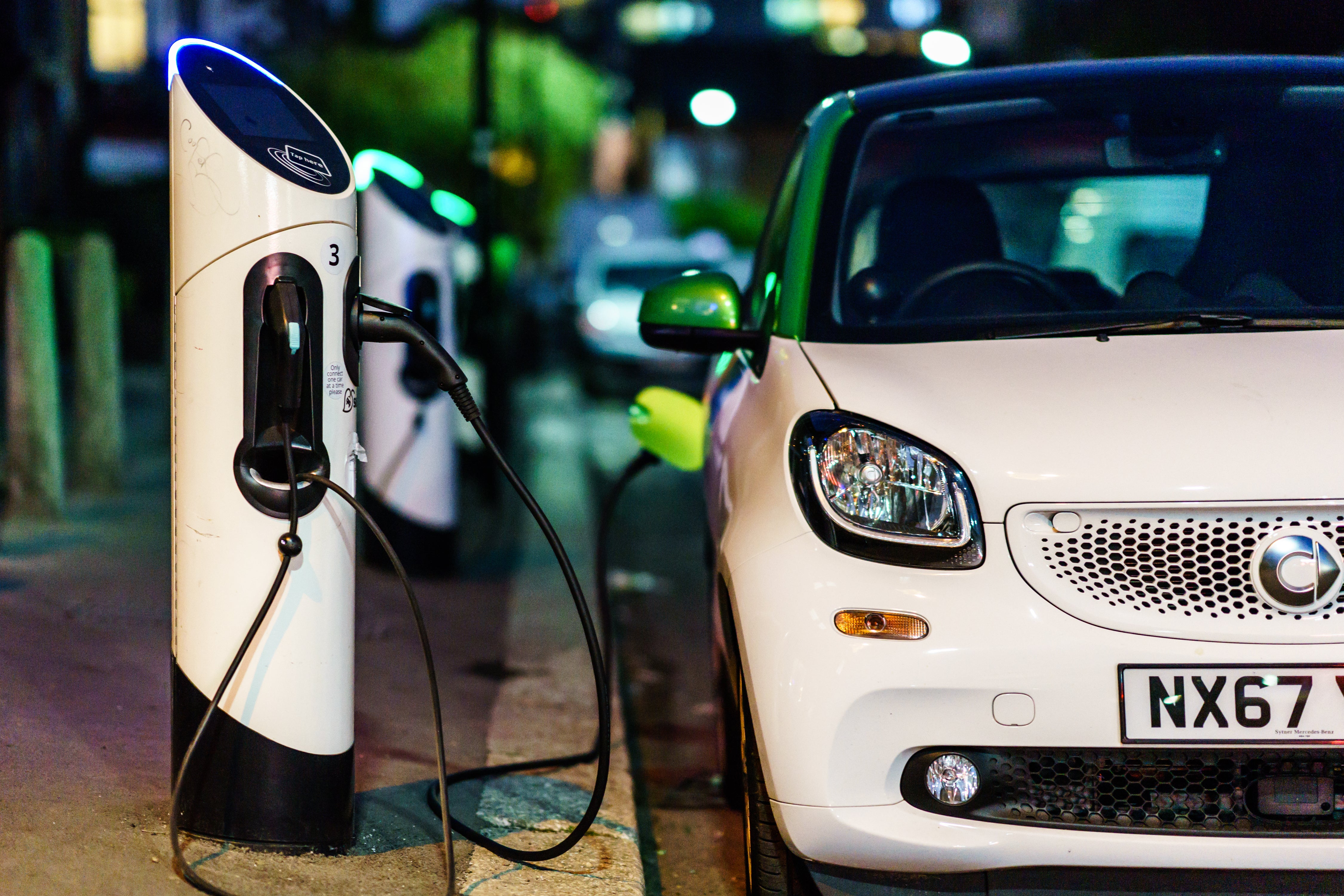The government has cut grants for electric cars – I can understand why, but it’s a bad move
The UK has to be a place where we buy and make the cars of the future. It is a transformative technology, but it needs investment and incentives


Enthusiastic as I am about the electric car, I can at least understand the government’s cut to the plug-in car grant, misguided as it is. To offer a caricature: it was being used, initially at least, by the very rich to buy Teslas and the like; luxury motors with a list price approaching £100,000.
The original grant, going back to 2011, was a bizarre £5,000 subsidy from what the politicians refer to as “hard-working families”, to the very wealthy. In recent times, it has been steadily trimmed back and gradually restricted, with the grant down to £3,000 on sub-£50,000 motors in the 2020 Budget.
With today’s announcement, it is firmly focused on what passes for the mass market: electric vehicles, priced below £35,000 – but now with the subsidy down to £2,500. By the way, how much of that in fact helps the manufacturers, rather than the consumer, is debatable. In other words, what would the price be if the grant was abolished altogether?
Given relatively high demand and short supply, right now the price would probably be higher; but as the numbers and range of electric cars on sale multiplies, and the cost drifts lower through higher volume production, that may change.
Still, for now it makes less sense than it did before to go electric – and it won’t help us go carbon-neutral. I suppose the way to look at the well-off swanning around in their all-electric Teslas, Polestars or Porsche Taycans and Jaguars, is that they’d otherwise be merrily pumping NOx and CO2 into our lungs in big V8s and V12s instead. The air we breathe – and the climate crisis – needs to be factored into such calculations.
The £35,000 cut-off does exclude quite a few very practical medium-sized electric cars with a wider range, and “range anxiety” is still a key factor in consumer resistance to adopting an electric vehicle. The Treasury may have overdone the restriction a bit, in other words – possibly to exclude the cheapest Tesla models, because of their plutocratic connotations and association with Elon Musk, the world’s richest human; if so it was a fairly petty mistake.
Read more:
The move seems to have been as a result of a fairly damming report by the National Audit Office a few weeks ago, which basically said the Treasury had blown more than £1bn on the plug-in car grant over the years. The apparent waste of money was too egregious even for this government, and so the grant has been shrunk once again.
But logic, industrial common sense and value for money isn’t everything so far as the green agenda is concerned, and what price can we put on the future of life on Earth? I’m quite serious about that, and the answer is that £1.3bn over a decade... ain’t that much. Does the Treasury factor in the cost to the planet when it makes its tax changes? I’ve not seen it.
If the UK is going to hit its CO2 targets and see an end to new petrol and diesel cars sales by 2030, it will need to create a lot more momentum behind the switch to electric. After all, only people who live in homes with off-street parking can easily install their own charge points for cheap and convenient overnight charging – the only sensible way to run an electric vehicle.
Owners rely on being able to use cheap electricity to compensate for the price premium still charged for pure electric power (and some of the same arguments apply to plug-in hybrids, now out of the grant scheme altogether). Flat dwellers and those in terraced houses (no matter how wealthy) are excluded from electric car ownership for the time being, as street side charging is rare and quite expensive (about the same as filling up with petrol, in cost per mile).
You can’t really dangle a lead 100m out of your window of leave cables to run across the pavement, for obvious reasons. Converting lamp posts might help, but it has hardly started.
One way to get Britain’s car fleet electrified is to load ever higher taxes on petrol and diesel vehicles and their usage. This has been done, to an extent, but the recent freeze in fuel duty reminds us just how politically “charged” such a policy can be, with the cost of living trumping the environment every time.
So, that leaves the only other route to getting us to go green: to throw money at it. Rational consumers need to be persuaded it makes economic sense to go electric, and the car makers have done an enormous amount to help persuade them with a range of real-world usable choices – Kia e-Niro, Hyundai Kona, Peugeot e-208, VW ID.3, MG ZS, and the British-built Nissan Leaf – being some of my favourites.
They’re quiet, refined, have ultra-low running costs, have excellent acceleration from rest, will go 200 to 300 miles on a charge... but they remain more costly then petrol or diesel equivalents. The UK has to be a place where we buy and make the cars of the future. It is a transformative technology, but it needs investment and incentives. The government is pulling the plug, and it will miss its targets.
Join our commenting forum
Join thought-provoking conversations, follow other Independent readers and see their replies
Comments
Bookmark popover
Removed from bookmarks